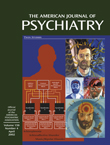Posttraumatic stress disorder (PTSD) is one of the most prevalent, disabling, and costly as well as the least understood of the anxiety disorders. Despite a century-old interest in the psychological and behavioral effects of trauma, systematic empirical research in this area is little more than a decade old. Responding to the recent upsurge of interest in this disorder on the part of clinicians and researchers alike, the editors of this volume seek to provide “mental-health professionals” with a comprehensive overview of PTSD from multiple perspectives that is “readable, informative and clinically helpful.” They have selected a format that is strongly evidence-based, scholarly, and yet not too detailed or exhaustive, allowing the interested reader and clinician to grasp key issues in epidemiology, diagnosis, pathophysiology, and treatment through highly readable, relatively brief (15–20 pages), modestly referenced (often fewer than 50 references), yet fairly comprehensive reviews of key areas. The text is somewhat slanted toward the relatively recent appreciation of the biological basis of the disorder, which has replaced older, predominantly psychological paradigms and made this disorder one of the most interesting opportunities to study the convergence of environmental events and genetic/neurodevelopmental/biological predisposition. Throughout the book, there is a refreshing acknowledgment of the limitations of our current understanding, even as the excitement of discovery in this new area continues.
In large part, the editors have succeeded admirably in their task. The broad range of topics covered by the book contrasts with the more selective and detailed focus of many other edited volumes in this area. Even some volumes that purport to present comprehensive reviews of the area are not quite as comprehensive. In particular, this volume includes discussion of ethnocultural issues (a relatively sophisticated discussion for its length), childhood PTSD, and “traumatic grief,” along with more mainstream topics. The volume provides information that is quite useful to clinicians, offering chapters not just on diagnosis but also on diagnostic dilemmas. Despite the breezy, brief, and readable treatment of these areas, the chapters are able succinctly to summarize what we know and do not know about the association of PTSD with major depression, the boundaries with normality, and the validity of the subtype “complex PTSD.” The chapter authors provide guidelines about when an event “qualifies” for the diagnosis as well as richly detailed descriptions of the individual symptoms listed in DSM-IV.
Similarly, individual chapters review the evidence for the efficacy of psychotherapy (including the controversial technique of eye movement desensitization and reprocessing), the efficacy of pharmacotherapy, and the efficacy of psychological “debriefing,” a widely accepted approach to secondary prevention of PTSD that recent studies have shown to be ineffective when broadly applied to all traumatized individuals. A chapter on epidemiology deals with clinical issues that are subsequently discussed in a larger public health context and provides a schematic model of PTSD risk that helps place subsequent discussions about prevention in perspective.
The editors’ particular interest in biological models is reflected in three separate chapters, all quite solid, covering neuroimaging, neuroendocrinology, and biological mechanisms. The chapter on biological mechanisms is particularly well done and covers the neuroanatomy of fear conditioning, cognitive neuroscience paradigms that affect our understanding of memory and dissociation, sensitization and its role in hyperarousal, and the role individual neurotransmitters might play in all this.
As with any edited volume, there are shortcomings, although these are rather minor. The chapter on pharmacotherapy is devoid of any detailed discussion of data on the efficacy of selective serotonin reuptake inhibitors because of the unfortunate timing of the volume, which lagged a bit behind actual publication of these data. Similarly, this chapter does not discuss the recent interest in α1 blockers for treatment of nightmares. These are two important areas that clinicians would want to know about. The very interesting chapter on the overlap between traumatic grief and PTSD never draws a definitive conclusion about whether this entity would be better “lumped” with or “split” from PTSD, even after exhaustively reviewing the areas of overlap and distinction. Overall, however, this is a solid and welcome volume that would help clinicians master the evidence base for this challenging and fascinating disorder.

